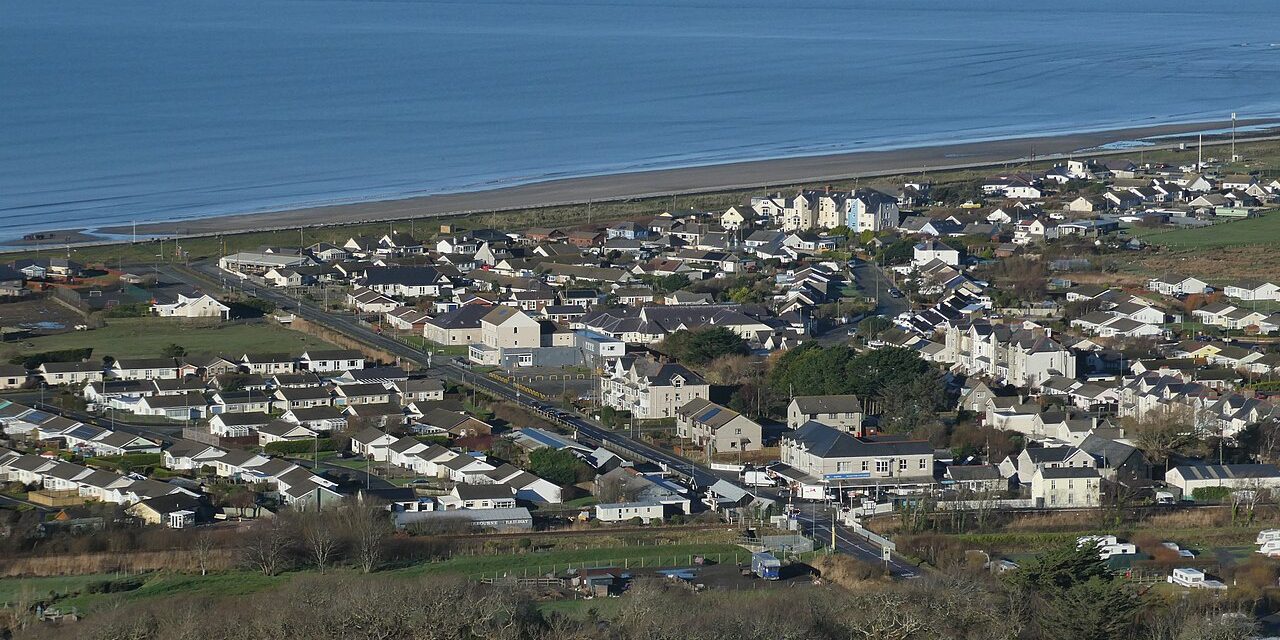Lost to the sea: The Welsh town home to future climate refugees
Across the globe, sea levels are on the rise at an unprecedented rate, and they pose a significant risk to coastlines across the UK. Fairbourne, a coastal village off the west coast of Wales, is no exception. On the Gwynedd coast, and at the mouth of the Mawddach Estuary, its population of approximately 700 inhabitants are set to become the first climate refugees in the UK.
It is estimated that by 2054, the village may be unsafe and/or uninhabitable. Fairbourne is the first place in the UK to be given the ‘no active intervention’ policy in their shoreline management plan (SMP), which dictates how coastlines are managed. For this small town, the plan is now to maintain or encourage a more ‘natural’ coastline, and to adapt to the risks.
This will be a huge cultural and personal loss that cannot be quantified. Heritage and ancestry is all to be lost to the sea
There are two main factors that drive global sea level change. The first is that ice sheets and glaciers are melting, which increases the amount of water in the sea. The second is thermal expansion, whereby as the water warms, the volume of the ocean expands. The problem in Fairbourne is that they have a natural barrier coastline as a defence against wave action and flooding, which is a long, narrow gravel ridge along the coast. However, their sediment supply is limited, and as the water becomes deeper and the sea level rises, there is less wave energy to push sediments onshore. Though a natural coastline can recover over a period of time, the scale of the issue and the development of the land means that the coastline’s damage is increasingly difficult to reverse.
Part of this issue is also economic. There is no relocation plan, and no way for the inhabitants to sell their property for any kind of profit. Coastal defences are a costly endeavour, and small towns such as Fairbourne are deemed as simply not worth the risk. However, it does beg the question, what is the price that can be placed on people’s homes? This will be a huge cultural and personal loss that cannot be quantified. Heritage and ancestry is all to be lost to the sea. It is a bleak prospect, with no real solution.
The options laid out are simple: either retreat now or evacuate later when there is no other choice. A small mercy is that at least with retreat, there is a chance to start anew. There is an opportunity for the future if we heed this a warning sign that the irreversible effects of climate change are on our doorstep.
As this is to be one of the first instances of climate displacement in a ‘Western’ country, it could signal a major response given the communities it is impacting
Local authorities may be unprepared to refer to their own citizens as ‘climate refugees’, particularly as the inherently political term has become very emotionally charged in the current climate. The rhetoric surrounding refugees and migration is harsh, unforgiving, and often cruel. It is unclear how these ‘climate refugees’ may be perceived, but it is likely not to be positive. While in government and policy, climate refugees are often looked upon in a security-related context, it is a complicated concept as these people more commonly fall under the term of ‘internally displaced people’.
Countries not in Western Europe or America are already in the firing line of the climate crisis, having to deal with the adverse effects of more frequent and severe natural disasters, extreme temperatures, and a lack of infrastructure and funding to deal with it. Countries such as Bangladesh and Tuvalu, as well as major cities such as Jakarta (Indonesia) and Bangkok (Thailand), are already facing the significant issue of rising sea levels displacing populations.
However, as this is to be one of the first instances of climate displacement in a ‘Western’ country, it could signal a major response given the communities it is impacting. Unfortunately, this seems unlikely given the current lack of action and the status and perception of Wales in the context of the UK.
Much of the world’s coastline is as vulnerable, and in many cases, more vulnerable than Fairbourne. With a lack of collective action from governments about the climate, it seems highly probable that we will be hearing more stories like this in the years to come. There is projected to be at least one metre of sea-level rise in the next century, and therefore a reimagining of major coastal cities will be necessary.

Comments